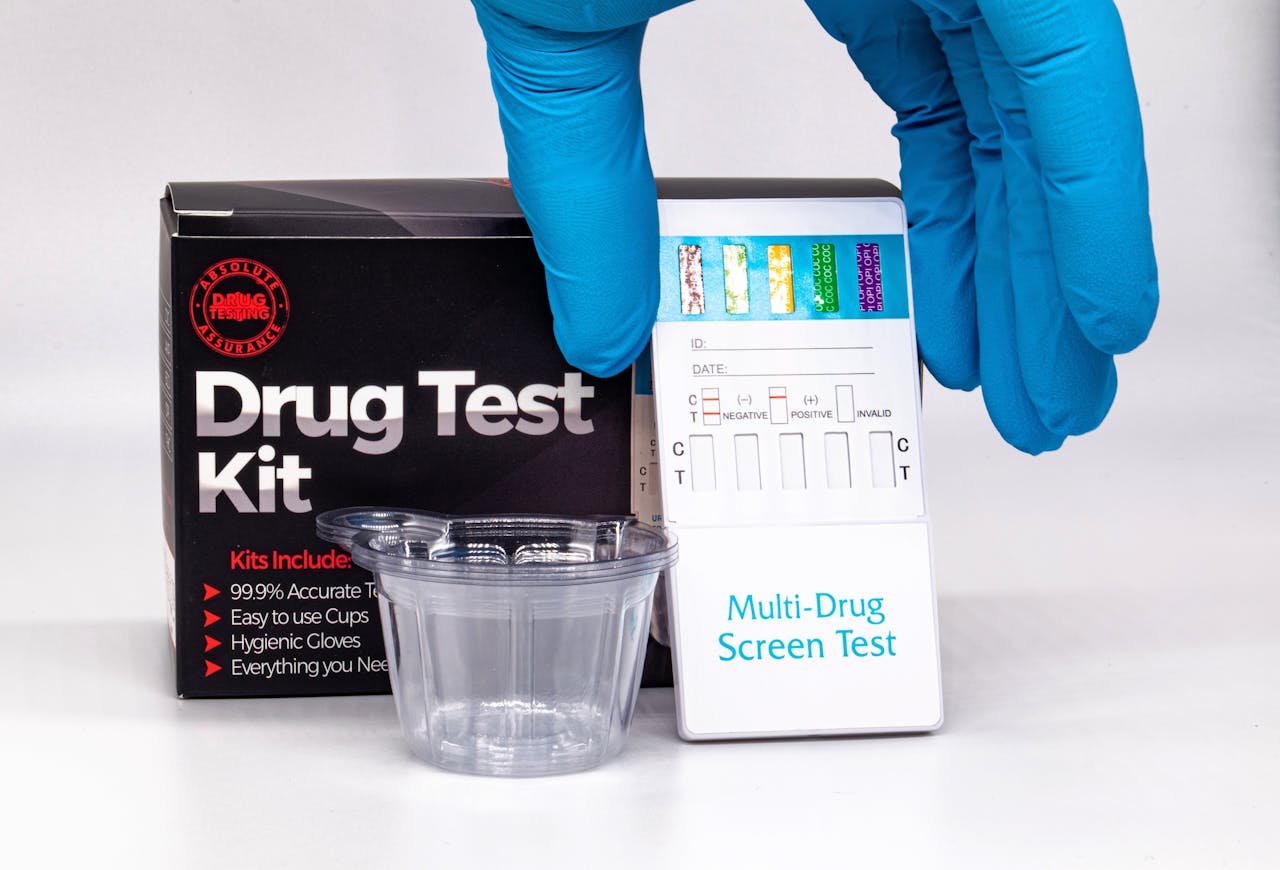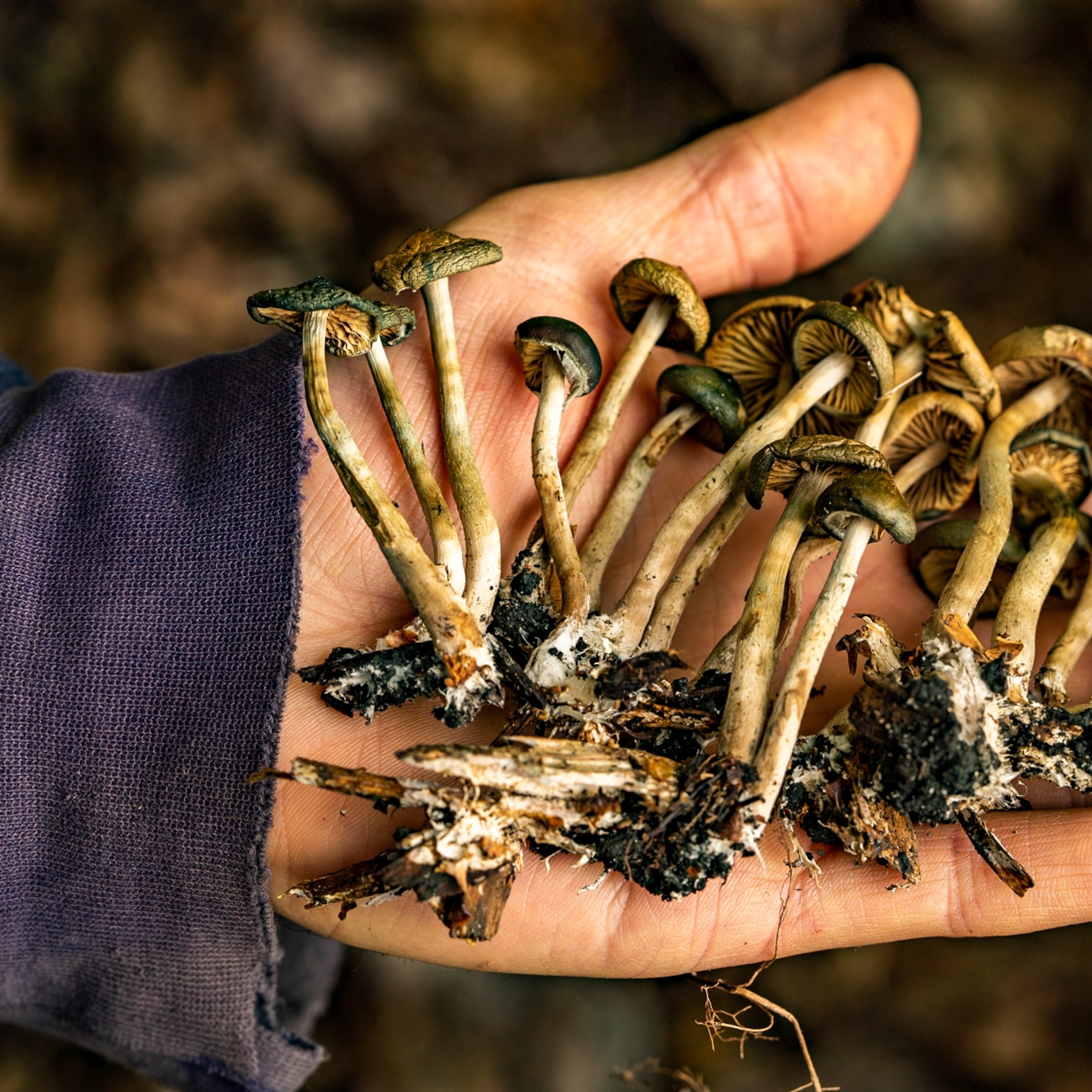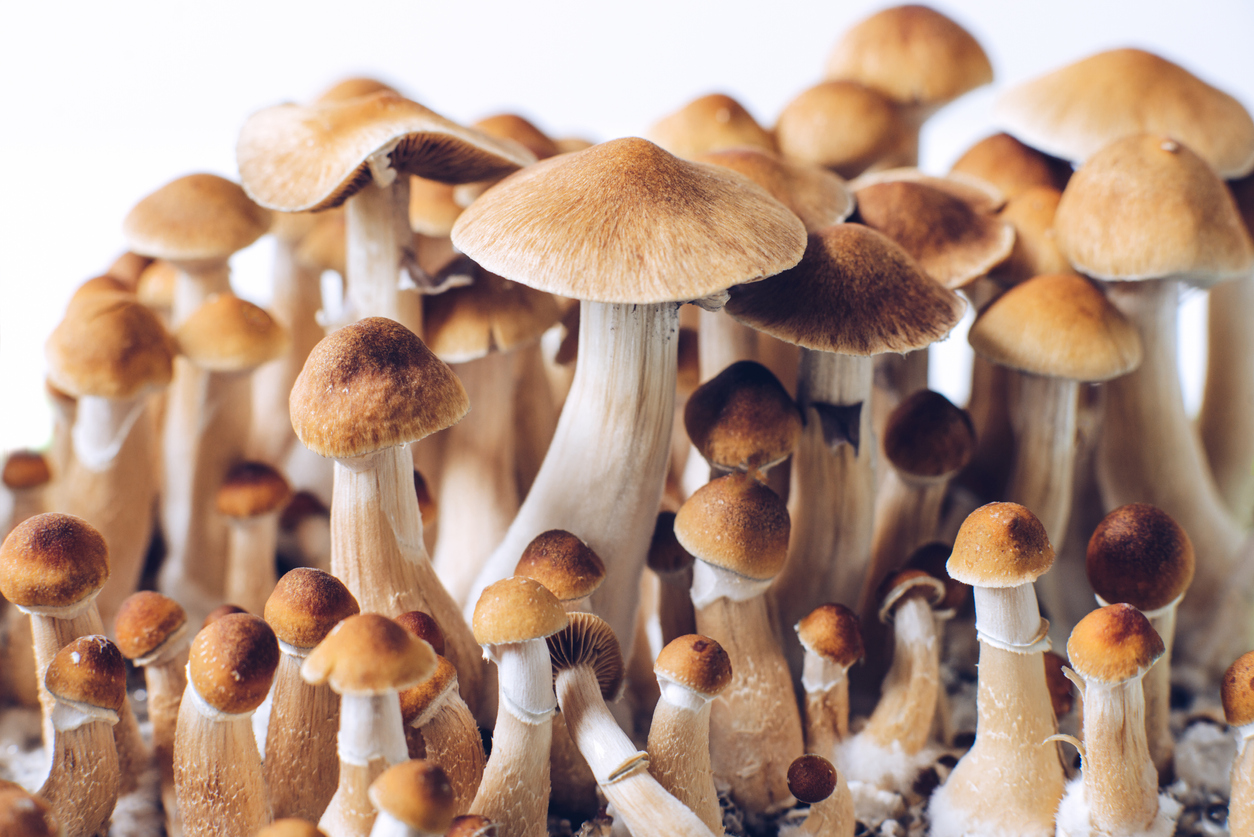Do Psychedelic Mushrooms Show Up In A Drug Test
Do psychedelic mushrooms show up in a drug test? This intriguing question has sparked curiosity among individuals navigating the realms of substance screening. The inquiry revolves around the potential detection of psychedelic mushrooms, commonly known for their psychoactive properties, in standard drug tests.
Author:Suleman ShahReviewer:Han JuFeb 20, 20247.7K Shares352.7K Views

Psilocybin-containing hallucinogenic mushrooms are often referred to as "shrooms." While many common drug tests do not screen for these chemicals, they could appear on specialist drug tests designed to identify hallucinogens.
Given how fast the body breaks down mushrooms and their constituents, it may be necessary to do particular drug tests soon after consumption to detect any drug residue. This article provides all the details on mushrooms and drug tests, including do psychedelic mushrooms show up in a drug testand several methods for accelerating their "flush out."
How Long Do Shrooms Stay In The System?
The body breaks down hallucinogenic mushrooms into their active ingredients, such as psilocybin and its active form, psilocin, after consumption. These substances alter perception and behavior by acting on the brain. Nevertheless, the whole procedure is really quick:
- Emotional, perceptual, and conscious changes might occur as soon as 20 to 30 minutes after use. Several hours may pass between the changes, depending on many variables including the dosage and the person.
- Simultaneously, the body starts breaking down the chemicals rapidly. The chemicals are eliminated from the body via the kidneys and end up in the urine.
- A drug's half-lifeis the time it takes the body to process or eliminate half of the total quantity that is consumed. In light of this, psilocin has a half-life of 50 minutes.
- Within three hours, the body excretes around 66% of the chemicals.
- The chemicals are no longer visible in the urine after 24 hours.
How Long Do The Effects Of Mushrooms Last?
The length of the effects of magic mushrooms also referred to as shrooms, varies based on many circumstances. After consumption, the hallucinatory effects usually last for three to six hours. It's crucial to remember that every person's experience is unique. A few examples of variables that may affect how long the effects last are;
Dosage
The length and strength of the effects are mostly determined by the quantity of mushrooms taken. Experiences that continue longer are probably the effect of higher dosages.
Potency
The length of the effects might be affected by the mushroom's potency. The main hallucinogenic substance that gives mushrooms their effects, psilocybin, is found in varied concentrations in different kinds of mushrooms.
Individual Factors
The duration of magic mushroom effects varies depending on body composition, metabolism, weight, and tolerance levels.
Preparation And Consumption Method
The method of preparation and consumption of mushrooms may affect their strength and the speed at which the body processes them. Examples of these methods include eating the mushrooms fresh, dried, or in a different form like tea.
Mindset And Environment
The combination of one's mental state and the actual environment in which mushrooms are consumed might affect the experience as a whole. Elements including attitude, mood, and the existence of underlying mental healthissues might affect the effects and how long they last.
Do Shrooms Show Up On Drug Tests?
Typically, drug tests don't search for mushrooms. Many of the tests used for routine or daily reasons, including screening job applications, do not reveal the presence of these medications. These substances are metabolized by the body quite fast.
On occasion, however, a person could have to go through a hallucinogen test if they seem to be under the influence of these drugs at the moment. There's also a chance that other detectable substances might taint magic mushrooms.
A dishonest seller may mix ordinary mushrooms with illicit substances, which would then be detected by a drug panel test.
Urine Drug Tests
The most popular kind of drug testing is urine testing. They are made to identify a variety of drugs, such as cocaine, opiates, amphetamines, and THC (found in marijuana).
However, the chemicals contained in mushrooms, psilocybin, and psilocin, are usually not screened for by conventional urine testing. Consequently, it is unlikely that mushrooms will surface on a typical urine drug test.
Blood Tests
To identify recent drug usage, blood tests are often used. When it comes to recognizing things like alcohol and certain narcotics, they are quite successful.
Although psilocybin may be found in the bloodstream soon after use, it is not a particular target in the majority of routine drug tests. As a result, mushrooms are unlikely to be detected on a standard blood test.
Hair Follicle Tests
Tests on hair follicles are renowned for having longer detection windows. However, their main purpose is to identify chronic drug use, such as long-term marijuana usage or opiate addiction. Mushrooms will rarely appear in hair follicle testing since they are not often tested for.
Saliva Tests
Because saliva tests are non-invasive and may identify recent drug use, they are growing in popularity.
However, they usually do not include mushrooms in their panel of drugs to check for, much as other tests do. As a result, a typical saliva test is unlikely to reveal the presence of mushrooms.
How Long Are Shrooms Detectable In Your System By Drug Tests?
It is difficult to pinpoint the precise duration of shroom detection due to the wide variety of drug tests available. However, the majority of conventional drug tests miss psilocybin mushrooms.
Fortunately, shroom detection drug tests have been developed. The most popular kind of drug test is a urine test. People's bodies often get rid of mushrooms in a day or two. Nonetheless, studies have shown that traces of psilocybin might remain in the urine for as long as a week.
It might be challenging to screen for mushrooms since they often do not up on drug tests. In light of this, unless they were consumed only a few hours before the test, mushrooms often do not appear in blood or saliva tests.
Tests on hair follicles may identify mushrooms up to ninety days after they are consumed. These tests are uncommon, however, since they may be quite costly.
Get Treatment For Drug Abuse
It's time to think about therapyif you're worried that psilocybin could come up on a drug test. Although mushrooms don't physically addict people, they may sometimes lead to psychological addiction, particularly if you misuse many substances or have risk factors.
It's important to keep in mind that you are not alone if you struggle with mushrooms or other drugs. With the medical and social assistance offered by a licensed treatment center, you may detox in a reasonably comfortable manner and concentrate on your fresh start. Your care is tailored to you and may consist of:
Inpatient Or Outpatient Treatment
Inpatient therapy might provide additional stability if that is what you need throughout your treatment. You may heal with more freedom when you get outpatient treatment.
Cognitive-behavioral Therapy
CBT is one of the most effective treatments for drug misuse. It assists you in identifying the factors that lead to drug usage so you can stay away from them.
Social Therapy
You may talk about the challenging aspects of recovering from drug usage in a safe environment by participating in group or family therapy.
Common Drug Tests And Shrooms - What’s Usually Tested?
A recurring worry that comes with the increased attention and discussion around magic mushrooms is the detectability of psilocybin in drug tests, particularly in light of recent initiatives to decriminalize them in different places.
While cannabis, cocaine, and opioids are the main targets of most routine drug tests, those who have experimented with mushrooms may question whether their trip down the hallucinogenic rabbit hole would show up on an examination.
Knowing when and how to identify psilocybin is essential information, whether it's for personal reasons, job interview preparation, or just out of curiosity.
Standard Testing Protocols
Most conventional drug tests, particularly those that are often given during the employment application process, are mainly intended to identify drugs that are frequently misused.
These substances include narcotics including cocaine, amphetamines, opiates, cannabis, and phencyclidine, or PCP. This kind of test is the most common and is often referred to as the "five-panel test."
Considering this emphasis, it is evident that psilocybin mushrooms, or shrooms as they are technically termed, are not usually on the list of substances to be checked for in this kind of regular drug screening.
Beyond The Five-Panel Test
Having said that, it's important to emphasize that many more thorough tests are offered that include more panels.
These panels may identify a greater variety of drugs, including methadone, alcohol, benzodiazepines, propoxyphene, MDMA, barbiturates, and methaqualone. Interestingly, the existence of magic mushrooms isn't normally a major problem and isn't often detected even with these more thorough examinations.
Frequently Asked Questions
What Are Psychedelics?
Greek termsthat translate to "mind manifesting" or "mind revealing" are the source of the word "psychedelic." It's a general phrase for a range of substances, some of which are man-made and othersof which are found in nature.
What Are Psychedelics Used For?
Psychedelics are used by people for a variety of purposes, such as spiritualityand culture, therapy, and leisure.
Does Psilocybin Have Health Benefits?
Psilocybin may be able to reduce addiction to alcohol, cocaine, nicotine, and maybe even opioids, according to researchers.
Are There Risks To Taking Psilocybin?
People with a personal or family historyof disorders such as schizophrenia are at high risk of long-term damage and should avoid psilocybin since psilocybin may aggravate or precipitate the emergence of underlying psychotic diseases.
Conclusion
This article aims to explain do psychedelic mushrooms show up in a drug test. So, the most common drug tests are unlikely to reveal the presence of mushrooms. Psilocybin and its metabolites may be detected by some tests, although regular drug screening panels usually do not contain them.
Nonetheless, it's critical to understand the particular examinations being administered as well as the local legal environment.
Jump to

Suleman Shah
Author
Suleman Shah is a researcher and freelance writer. As a researcher, he has worked with MNS University of Agriculture, Multan (Pakistan) and Texas A & M University (USA). He regularly writes science articles and blogs for science news website immersse.com and open access publishers OA Publishing London and Scientific Times. He loves to keep himself updated on scientific developments and convert these developments into everyday language to update the readers about the developments in the scientific era. His primary research focus is Plant sciences, and he contributed to this field by publishing his research in scientific journals and presenting his work at many Conferences.
Shah graduated from the University of Agriculture Faisalabad (Pakistan) and started his professional carrier with Jaffer Agro Services and later with the Agriculture Department of the Government of Pakistan. His research interest compelled and attracted him to proceed with his carrier in Plant sciences research. So, he started his Ph.D. in Soil Science at MNS University of Agriculture Multan (Pakistan). Later, he started working as a visiting scholar with Texas A&M University (USA).
Shah’s experience with big Open Excess publishers like Springers, Frontiers, MDPI, etc., testified to his belief in Open Access as a barrier-removing mechanism between researchers and the readers of their research. Shah believes that Open Access is revolutionizing the publication process and benefitting research in all fields.

Han Ju
Reviewer
Hello! I'm Han Ju, the heart behind World Wide Journals. My life is a unique tapestry woven from the threads of news, spirituality, and science, enriched by melodies from my guitar. Raised amidst tales of the ancient and the arcane, I developed a keen eye for the stories that truly matter. Through my work, I seek to bridge the seen with the unseen, marrying the rigor of science with the depth of spirituality.
Each article at World Wide Journals is a piece of this ongoing quest, blending analysis with personal reflection. Whether exploring quantum frontiers or strumming chords under the stars, my aim is to inspire and provoke thought, inviting you into a world where every discovery is a note in the grand symphony of existence.
Welcome aboard this journey of insight and exploration, where curiosity leads and music guides.
Latest Articles
Popular Articles



